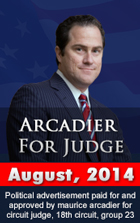Under Title VII, May An Employee Pursue Retaliation If Not Included In EEOC Claim

Answer:
Eleventh Circuit case law supports that a charge of retaliation can be added to an EEOC discrimination complaint as long as the complaint is timely, has been properly presented to the court, and can be reasonably expected to grow out of the original discrimination charge.
Analysis
This rule is based on the Gupta case, which held it is unnecessary for a plaintiff to exhaust administrative remedies prior to bringing a retaliation claim growing out of an earlier charge. The district court has ancillary jurisdiction to hear such a claim when it grows out of an administrative charge that is properly before the court. Gupta, 654 F.2d at 414. Gupta v. East Texas State University, 654 F. 2d 411, 414 (5th Cir. 1981); Harget v. Valley Federal Savings Bank, 60 F.3d 754, 761 (11th Cir. 1995) (Citing Barrow v. New Orleans Steamship Association, 932 F.2d 473 (5th Cir. 1991)).
In Gupta, the district court had allowed the plaintiff to amend his complaint to add allegations of retaliatory discharge even though he had not filed retaliation charges with the EEOC. Gupta, at 413. In Gutpa, the court relied on "strong practical reasons and policy justifications" for this conclusion and noted that by nature, retaliation claims arise after the filing of an EEOC charge. Id. 414. With respect to practicality, the Gupta court also noted that "requiring prior resort to the EEOC would mean that two charges would have to be filed in a retaliation case, a double filing that would serve no purpose except to create additional procedural technicalities when a single filing would comply with the intent of Title VII." Id. at 414. The Gupta court explained that this would create a needless procedural barrier to private claimants. Id. 414. With respect to policy, the Gupta court held that, "eliminating this needless procedural barrier will deter employers from attempting to discourage employees from exercising their right under Title VII." Id. at 414.
The most ambiguous term in the Gupta rule was further refined by later case law which provided clarification as to when such a charge is "properly" before the court. Thus far, subsequent case law has applied Gupta by prohibiting charges which are "untimely" or not previously presented to the EECO from being "properly" before the court. Harget v. Valley Federal Savings Bank, 60 F.3d 754, 761 (11th Cir. 1995) (Citing Barrow v. New Orleans Steamship Association, 932 F.2d 473 (5th Cir. 1991)).
However, the circumstances in Harget and Barrow are limited in that they pertain to fact patterns in which a claim had statutorily expired or the issue had not presented to the EEOC for investigation which prevented them from being "properly" before the district court. This is based on the premise that, if the claim is not "properly" before the district court, it would have to be dismissed as courts generally have no jurisdiction to hear claims of discrimination based on retaliation unless a charge is first filed with the EEOC. Barrow, at 479.
Yet, the question of whether a retaliation claim has been "properly" presented to the court does not require the plaintiff to first present the matter of retaliation to the EEOC. This is because a claim of retaliation could reasonably be expected to grow out of the original charge of discrimination as the district court has ancillary jurisdiction to hear such a claim. Gupta, at 414; Baker v. Buckeye Cellulose Corporation, 856 F.2d 167, 169 (11th Cir. 1988). As noted in Baker, the scope of a judicial complaint is defined by the scope of the EEOC investigation. Id. at 169.
More Information: For more information, please visit of employment law page
Attorney: Maurice Arcadier
Status: Responded
Date Filed: November 2, 2012





